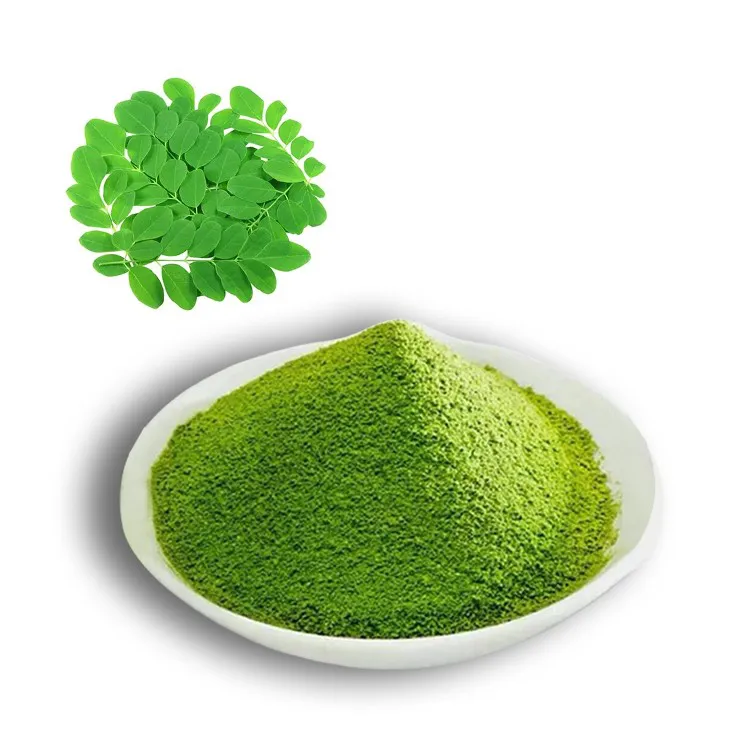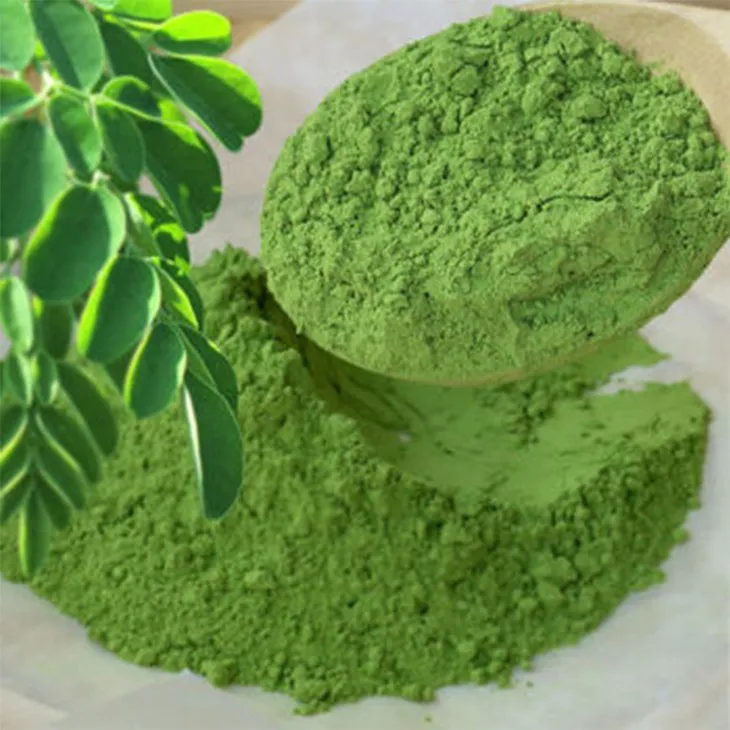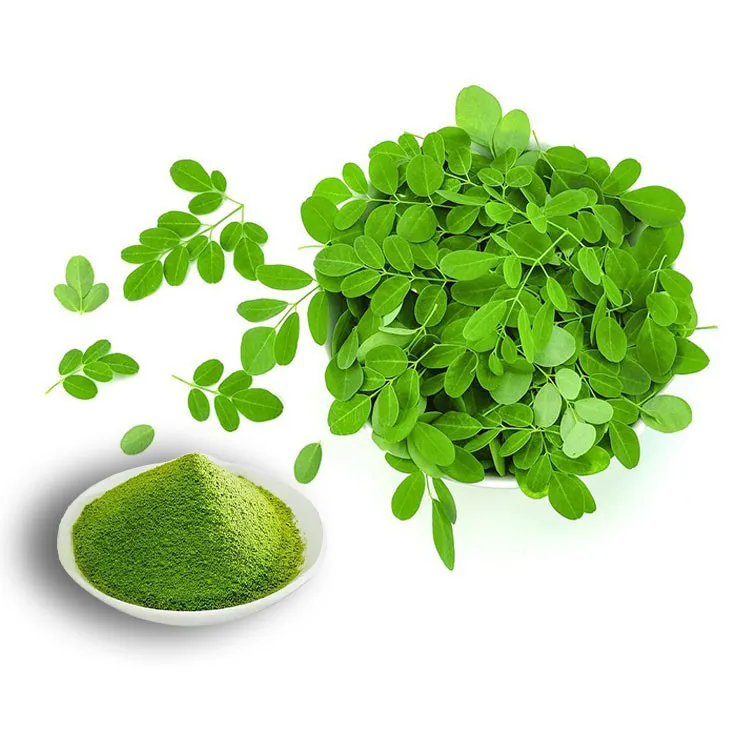- 0086-571-85302990
- sales@greenskybio.com
Organic supercritical CO2 extraction of moringa powder.
2024-12-01

1. Introduction
In recent years, the extraction of valuable components from natural products has become an area of intense research. Among the various natural products, Moringa powder has emerged as a highly promising source of bioactive compounds. Supercritical CO2 extraction, on the other hand, is a modern and efficient extraction technique. The combination of organic Moringa powder and supercritical CO2 extraction offers numerous benefits and holds great potential for various applications.

2. Characteristics of Moringa powder for Supercritical CO2 Extraction
Moringa powder is rich in a variety of components that make it suitable for supercritical CO2 extraction. Firstly, it contains a significant amount of lipids. These lipids can be effectively extracted using supercritical CO2 due to the solubility properties of CO2 in lipid - like substances under supercritical conditions. The extraction process can target these lipids without causing significant degradation, preserving their nutritional and functional properties.
Secondly, moringa powder also contains bioactive compounds such as flavonoids, phenolic acids, and vitamins. Supercritical CO2 extraction can selectively extract these compounds based on their solubility in the supercritical CO2 - based solvent system. This selectivity is crucial as it allows for the isolation of specific bioactive components with high purity, which is often desired for applications in the pharmaceutical and nutraceutical industries.
Moreover, the particle size and porosity of moringa powder play an important role. Finely ground moringa powder with appropriate porosity provides a larger surface area for the interaction with supercritical CO2. This enhanced surface area facilitates the mass transfer of the target components from the powder matrix to the supercritical phase, resulting in more efficient extraction.

3. The Supercritical CO2 Extraction Process
3.1. Supercritical State of CO2
Carbon dioxide (CO2) exists in a supercritical state when it is subjected to specific temperature and pressure conditions. Above its critical temperature (31.1°C) and critical pressure (7.38 MPa), CO2 exhibits properties that are intermediate between those of a gas and a liquid. In this supercritical state, CO2 has a high density like a liquid, which enables it to dissolve substances, and a low viscosity like a gas, which allows for efficient diffusion through the sample matrix.
3.2. Extraction Steps
- Pre - treatment of Moringa Powder: Before extraction, the moringa powder is usually dried and ground to an appropriate particle size. This step is essential to ensure uniform extraction and to increase the surface area available for interaction with supercritical CO2.
- Loading into the Extraction Vessel: The pre - treated moringa powder is then loaded into the extraction vessel. The extraction vessel is designed to withstand the high pressures and temperatures required for supercritical CO2 extraction.
- Introduction of Supercritical CO2: Supercritical CO2 is introduced into the extraction vessel at the appropriate temperature and pressure. The CO2 is typically obtained from industrial sources and is purified before use. As the supercritical CO2 flows through the moringa powder, it dissolves the target components.
- Separation of the Extract: After passing through the extraction vessel, the supercritical CO2 - extract mixture is passed through a separator. Here, the pressure and/or temperature are adjusted to cause the extract to precipitate out of the supercritical CO2. The separated extract can then be collected for further analysis or use, while the CO2 is recycled back to the extraction system for reuse.

4. Economic Advantages of Supercritical CO2 Extraction of Moringa Powder
One of the significant economic advantages of using supercritical CO2 extraction for moringa powder is the reduced solvent usage. Unlike traditional extraction methods that often require large amounts of organic solvents, supercritical CO2 can be used as a solvent substitute. Since CO2 is a non - toxic, non - flammable, and inexpensive gas, the cost associated with solvent procurement and disposal is significantly reduced.
Additionally, supercritical CO2 extraction offers high extraction efficiency. This means that a higher yield of the desired components can be obtained from the moringa powder in a shorter extraction time. Higher extraction efficiency leads to better utilization of the raw material, reducing the overall cost of production.
The recyclability of CO2 also contributes to the economic viability of the process. As mentioned earlier, the CO2 used in the extraction can be recycled and reused multiple times. This not only reduces the cost of CO2 supply but also minimizes the environmental impact associated with CO2 emissions.
5. Ecological Advantages
Lower Energy Consumption is a major ecological advantage of supercritical CO2 extraction of moringa powder. Compared to some traditional extraction methods, the energy requirements for maintaining the supercritical state of CO2 are relatively lower. This is because the supercritical CO2 extraction process can often be carried out at relatively moderate temperatures and pressures, reducing the need for excessive heating or pressurization.
As mentioned before, the use of CO2 as a solvent substitute instead of organic solvents is also an ecological benefit. Organic solvents are often volatile and can contribute to air pollution if not properly managed. Supercritical CO2, being non - toxic and non - flammable, has a much lower environmental impact.
Another aspect is the sustainability of the process. Since moringa is a fast - growing plant that can be cultivated in many regions, the use of moringa powder as a raw material for extraction is a sustainable option. Combining this with the environmentally friendly supercritical CO2 extraction method makes the entire process more sustainable in the long run.
6. Potential Applications of the Extracted Moringa Components
6.1. Pharmaceutical Industry
The bioactive components extracted from moringa powder using supercritical CO2 extraction have potential applications in the pharmaceutical industry. For example, flavonoids and phenolic acids have antioxidant and anti - inflammatory properties. These properties can be utilized in the development of drugs for treating various inflammatory diseases such as arthritis.
Additionally, some of the compounds may have antimicrobial properties. This makes them suitable for the development of new antimicrobial agents, which are crucial in the fight against antibiotic - resistant bacteria.
6.2. Nutraceutical Industry
In the nutraceutical industry, the extracted moringa components can be used to develop dietary supplements. Moringa is known for its high nutritional value, containing vitamins, minerals, and proteins. The extraction process can isolate and concentrate these beneficial components, making them more suitable for inclusion in dietary supplements.
For example, the lipids extracted from moringa powder can be a source of healthy fatty acids. These fatty acids can be incorporated into nutraceutical products aimed at improving heart health or providing energy.
6.3. Cosmetic Industry
The cosmetic industry can also benefit from the supercritical CO2 - extracted moringa components. The antioxidant properties of the bioactive compounds make them suitable for use in anti - aging creams and lotions. They can help protect the skin from oxidative damage caused by free radicals, reducing the signs of aging such as wrinkles and fine lines.
Moreover, the lipids and proteins in moringa powder can be used to develop hair care products. For example, they can be used to improve the texture and strength of hair, reducing hair breakage and promoting hair growth.
7. Future Prospects
The combination of organic moringa powder and supercritical CO2 extraction has a bright future. As research continues, improvements in the extraction process are expected. These may include optimization of extraction parameters such as temperature, pressure, and extraction time to further enhance the yield and quality of the extracted components.
There is also potential for the development of new applications in emerging industries. For example, in the field of functional foods, the extracted moringa components could be used to develop novel food products with enhanced nutritional and health - promoting properties.
In addition, as consumer awareness of natural and sustainable products increases, the demand for products derived from supercritical CO2 - extracted moringa powder is likely to grow. This will drive further research and development in this area, making the technique more efficient, cost - effective, and widely applicable.
FAQ:
1. What are the main characteristics of moringa powder that make it suitable for supercritical CO2 extraction?
Moringa powder contains various bioactive compounds such as vitamins, minerals, and antioxidants. These components are often heat - sensitive and can be degraded by traditional extraction methods. Supercritical CO2 extraction is a gentle process that can preserve the integrity of these valuable compounds. Also, the chemical structure and physical properties of the compounds in moringa powder are such that they can interact favorably with supercritical CO2, allowing for efficient extraction.
2. How does supercritical CO2 extraction reduce solvent usage compared to traditional methods?
In traditional extraction methods, large amounts of organic solvents are often required. Supercritical CO2, on the other hand, acts as both a solvent and a solute under supercritical conditions. It can dissolve the target compounds from moringa powder without the need for additional large volumes of solvents. Once the extraction is complete, the CO2 can be easily removed and recycled, minimizing the overall solvent consumption.
3. What are the potential applications of the components extracted from moringa powder by supercritical CO2 extraction?
The extracted components from moringa powder have diverse potential applications. In the food industry, they can be used as natural additives for their nutritional and antioxidant properties. In the pharmaceutical and nutraceutical sectors, they may be developed into dietary supplements or used in the formulation of drugs due to their potential health - promoting effects. In the cosmetic industry, these components can be incorporated into skincare and haircare products for their moisturizing, anti - aging, and other beneficial effects.
4. How does supercritical CO2 extraction of moringa powder contribute to lower energy consumption?
The supercritical CO2 extraction process typically operates at relatively mild temperatures and pressures compared to some traditional extraction methods. This reduces the energy required for heating and pressurizing the system. Additionally, the ability to recycle the CO2 means that less energy is needed to produce and handle new solvents, thus contributing to lower overall energy consumption.
5. What are the future prospects of supercritical CO2 extraction of moringa powder?
The future prospects are quite promising. As consumer demand for natural and sustainably - produced products grows, the use of supercritical CO2 extraction for moringa powder is likely to increase. It has the potential to be further optimized in terms of extraction efficiency and cost - effectiveness. There may also be new applications discovered for the extracted components, especially in emerging fields such as functional foods and personalized medicine.
Related literature
- Supercritical Fluid Extraction of Bioactive Compounds from Moringa oleifera: A Review"
- "Advances in Supercritical CO2 Extraction of Natural Products: The Case of Moringa"
- "Moringa Powder and Green Extraction Technologies: Focus on Supercritical CO2"
- ▶ Hesperidin
- ▶ citrus bioflavonoids
- ▶ plant extract
- ▶ lycopene
- ▶ Diosmin
- ▶ Grape seed extract
- ▶ Sea buckthorn Juice Powder
- ▶ Beetroot powder
- ▶ Hops Extract
- ▶ Artichoke Extract
- ▶ Reishi mushroom extract
- ▶ Astaxanthin
- ▶ Green Tea Extract
- ▶ Curcumin Extract
- ▶ Horse Chestnut Extract
- ▶ Other Problems
- ▶ Boswellia Serrata Extract
- ▶ Resveratrol Extract
- ▶ Marigold Extract
- ▶ Grape Leaf Extract
- ▶ blog3
- ▶ blog4
- ▶ blog5
-
The best lemon juice powder in nature.
2024-12-01
-
Organic Vitamin K2 Powder Suppliers
2024-12-01
-
Bulk purchase of L - tyrosine.
2024-12-01
-
Vitamin K2 Manufacturers
2024-12-01
-
100% Pure Natural Rutin.
2024-12-01
-
Chinese Citrus Bioflavonoid Suppliers.
2024-12-01
-
Pine bark Extract Powder
2024-12-01
-
Citrus bioflavonoids
2024-12-01
-
Feverfew Extract
2024-12-01
-
Cocoa Extract
2024-12-01
-
Wheat Germ Extract
2024-12-01
-
Cat Claw Extract
2024-12-01
-
Milk Thistle Extract
2024-12-01
-
Citrus Aurantium Extract
2024-12-01
-
Tongkat Ali Extract Powder
2024-12-01
-
Alisma Extract
2024-12-01





















